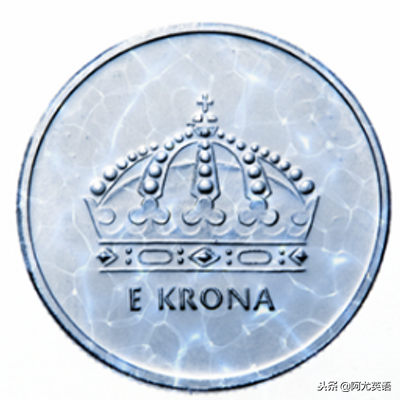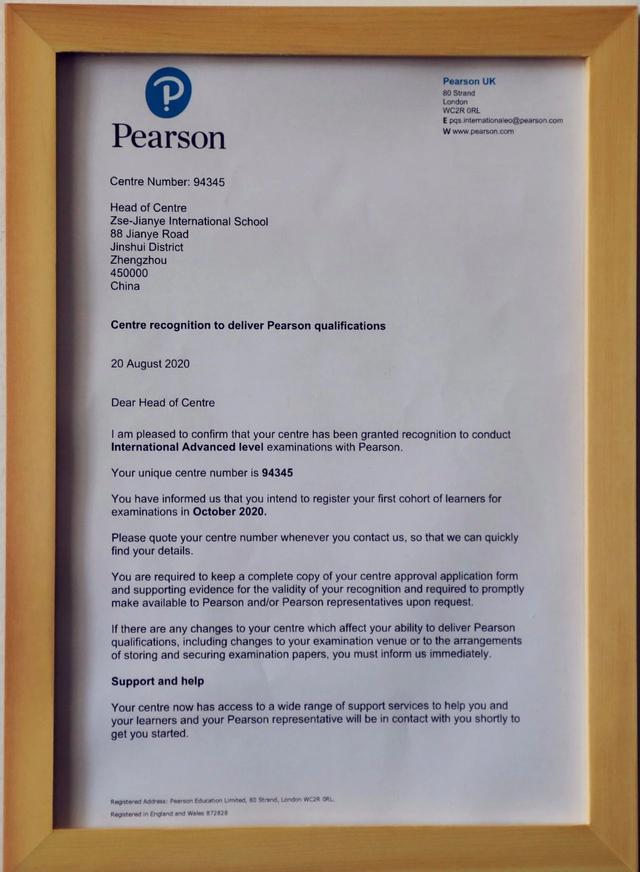是什么变化造成比特币ETF已经存在的现实?

In Scandinavian countries, like Sweden, Norway, electronic payment methods have an 80 percent weight in consumer’s buying, but the cash, only 20 percent. In some South European and East European countries, the opposite or worst: the electronic payment has a proportion of only 10-15 percent. People are still insisting stubbornly on their banknotes and coins. Even in Germany, the most populated country in the European Union, electronic consumer payment has a proportion of only 16,5 percent. (Data of 2016.)
在斯堪的纳维亚国家,如瑞典,挪威,电子支付方式占消费者购买量的80%,但现金只有20%。在一些南欧和东欧国家,相反或最差:电子支付的比例仅为10-15%。人们仍然坚持不懈地坚持自己的纸币和硬币。即使在德国这个欧盟人口最多的国家,电子消费支付的比例也只有16.5%。(2016年数据。)
Where the ETF launch is history
Is it a coincidence that Sweden is also one of the most supportive countries of the cryptocurrencies? One sign of this is that, while US authorities are discussing the possibility of a Bitcoin ETF long ago, in Sweden, something similar exists since more than three years (05-18-2015), in form of an ETN.
瑞典是否也是加密货币最支持的国家之一,这是巧合吗?这方面的一个迹象是,虽然美国当局很久以前就讨论过比特币ETF的可能性,但在瑞典,三年多来一直存在类似情况(2015年8月5日),以ETN的形式存在。
The issuer, XBT Provider made later also other series of the ETN in Euros and issued an Ethereum ETN. The products are accessible also from other countries of the EU. (In the US, the SEC suspended the trading of this products.)
发行人,XBT提供商后来也以欧元制作了其他系列的ETN并发行了以太坊ETN。这些产品也可以从欧盟其他国家获得。(在美国,美国证券交易委员会暂停了这些产品的交易。)
Sweden made the homework
There are other supportive, crypto-friendly countries in the world, like Switzerland, Malta, Singapore, Denmark, Australia, Japan. (For example, see this about the taxation.) What makes Sweden different? I think one important factor is the regulation.
世界上还有其他支持性,加密友好的国家,如瑞士,马耳他,新加坡,丹麦,澳大利亚,日本。(例如,看看这个税收。)是什么让瑞典与众不同?我认为一个重要因素是监管。
In many countries regulation is far behind the reality, many steps have to be made. A lot of countries haven’t approved any regulations, in others, the only job done was issuing several warnings over cryptocurrencies, or discouraging the citizens from investing in them. But Sweden made its homework:
在许多国家,监管远远落后于现实,必须采取许多措施。很多国家都没有批准任何法规,在其他国家,唯一的工作就是发出几个关于加密货币的警告,或者阻止公民投资。但瑞典做了功课:
The Swedish Tax Agency has given a preliminary ruling on Value Added Tax (VAT) on bitcoins, stating that trade in bitcoins is not subject to Swedish VAT, but is instead subject to the Finansinspektionen (Financial Supervisory Authority) regulations and treated as a currency. The decision has been appealed by the Swedish Tax Authority.
瑞典税务局对比特币的增值税(VAT)做出了初步裁决,指出比特币交易不受瑞典增值税的限制,而是受Finansinspektionen(金融监管局)规定的约束并作为货币处理。该决定已被瑞典税务局上诉。
The Swedish jurisdiction is in general quite favorable for bitcoin businesses and users as compared to other countries within the EU and the rest of the world. The governmental regulatory and supervisory body Swedish Financial Supervisory Authority (Finansinspektionen) have legitimized the fast-growing industry by publicly proclaiming bitcoin and other digital currencies as a means of payment.
与欧盟内部和世界其他国家相比,瑞典管辖区对比特币业务和用户总体上非常有利。瑞典金融监管局(Finansinspektionen)的政府监管机构通过公开宣称比特币和其他数字货币作为支付手段,使快速发展的行业合法化。
For certain businesses interacting with fiat (mainly exchanges) the current regulation dictates that an application for approval/license
对于某些与法令(主要是交易所)互动的企业,现行法规规定申请批准/许可
No word about expenses
Why need Sweden cryptocurrencies if they are already paying almost everything electronically? It can be for a bunch of reasons, like privacy and decentralization, investment and online applications with smart contracts. But I suppose one of them can be really important. Denmark, Sweden, Switzerland are some of the more developed and richest countries in the world. But also with the highest prices, of almost everything, all goods, and services.
如果他们已经以电子方式支付几乎所有东西,为什么需要瑞典加密货币?它可能出于一系列原因,如隐私和分散,投资和智能合约的在线应用程序。但我想其中一个可能非常重要。丹麦,瑞典,瑞士是世界上较发达和最富裕的国家之一。但也有最高的价格,几乎所有的东西,所有的商品和服务。
I suppose in this countries are living educated, conscious customers and they don’t like to pay too much for services. In the EU, maintaining a bank account with a debit or credit card can cost you on average, by my experience, at least 5-15 EUR monthly. (I wanted to know how much this could be in Sweden but it was impossible. Some banks have no English home page, others aren’t discussing this theme in English.)
我想在这个国家都是受过良好教育的,有意识的顾客,他们不喜欢为服务付出太多。在欧盟,根据我的经验,使用借记卡或信用卡维护银行账户可能会使您平均每月至少花费5-15欧元。(我想知道这在瑞典有多少,但这是不可能的。有些银行没有英文主页,有些银行没有用英语讨论这个主题。)
A small crypto-exchange
There is a Sweden based Bitcoin exchange, Buybitcoinworldwide.comwrote:
Buybitcoinworldwide.com写道:瑞典有一个基于比特币的交易所。
Safello is a Bitcoin exchange based in Sweden and fully-registered as a financial institution. It offers a wide range of payment methods - Swish, SEPA, SWIFT, Faster Payments, Bankgiro and iDEAL - to European residents.
Safello是一家位于瑞典的比特币交易所,已完全注册为金融机构。它向欧洲居民提供各种支付方式 - Swish,SEPA,SWIFT,Faster Payments,Bankgiro和iDEAL。
Visiting the page of this exchange, they may be settled in Sweden, but are more Europeans. “Our goal is to be Europe’s most serious actor within bitcoin” – so the plan of the company. But I suppose national – or smaller – exchanges don’t have real future, the strong competition requires mergers and concentration. Allegedly the company was funded years ago, but I couldn’t find it on the exchange’s list of Coinmarketcap.com.
访问这个交换页面,他们可能会在瑞典定居,但更多的是欧洲人。“我们的目标是成为欧洲比特币中最严肃的演员” - 所以该公司的计划。但我认为全国或更小的交易所没有真正的未来,强大的竞争需要兼并和集中。据称该公司多年前获得资助,但我无法在交易所的Coinmarketcap.com名单上找到它。
No one ATM?
As a Bitcoin holder, I’m also interested if I could buy with it in stores, bars, restaurants. “We visited Sweden and Bitcoin acceptance is at an average rate”.
作为一个比特币持有者,我也有兴趣,如果我可以在商店,酒吧,餐馆购买它。“我们访问了瑞典,比特币接受率平均”。
In the country, seemingly there is no cryptocurrency ATM. While in the US we find 2187, in Austria 234 and in Switzerland also some dozen. Maybe Swedish consumers like their credit cards and are buying bitcoins only for investing? Another explanation is, why should they use ATM if they pay electronically? You practically don’t need cash anymore.
在该国,似乎没有加密货币ATM。在美国,我们发现2187,在奥地利234和瑞士也有一些。也许瑞典消费者喜欢他们的信用卡,并且仅购买比特币用于投资?另一种解释是,如果他们以电子方式付款,他们为什么要使用ATM呢?你几乎不需要现金了。
Becoming converts
The Swedish people appear to be true investors:
瑞典人似乎是真正的投资者:
Avanza estimates that about 30,000 Swedes have become bitcoin converts after investing via XBT Provider’s Bitcoin trackers, which are traded on Nasdaq Nordic. That’s a 50-fold increase from a year ago. In total, Swedes have invested 2.2 billion kronor ($260 million) in bitcoin – wrote Fortune in middle of the hype of December.
Avanza估计,在通过XBT提供商的比特币跟踪器进行投资后,约有30,000名瑞典人成为比特币转换者,这些跟踪器在纳斯达克北欧上市交易。这比一年前增加了50倍。总体而言,瑞典人已经在比特币投资220个十亿瑞典克朗($ 260万美元) -写的财富在12月炒作的中间。
Crypto for the poor
But last week I read a really interesting news:
但上周我读了一个非常有趣的新闻:
The Sweden Central Bank has announced the intention of designing a digital state-issued cryptocurrency to satisfy the needs of those that still rely on cash to make their day to day spendings. This cryptocurrency would be adopted by people that have failed to adapt to a nearly cashless society according to statistics.
瑞典中央银行已宣布打算设计一种数字国家发行的加密货币,以满足仍然依靠现金进行日常消费的人们的需求。根据统计数据,这种加密货币将被那些未能适应几乎无现金社会的人所采用。

The fact that a national bank wants to create a cryptocurrency, is very interesting itself, the explanation, even more. They want to address people who aren’t using electronic, cashless methods – I suppose, mostly the poor. If the 20 percent of the consumer purchases are paid with cash, that can mean 25-30 percent or more of the population – because the poor are making fewer payments than the rich buyers.
国家银行想要创建加密货币的事实本身就非常有趣,解释甚至更多。他们想要解决那些没有使用电子无现金方法的人 - 我想,主要是穷人。如果20%的消费者购买是用现金支付的话,那可能意味着25-30%或更多的人口 - 因为穷人的支付比富裕的购买者少。
Open your mind
In many Third World (undeveloped, “emerging”) countries, cryptos can make an important difference, giving electronic services to the poor who are excluded from the “traditional finance system”. (Because they can’t afford a bank account or they are living on places without any bank offices.) But if the Sweden Central Bank is right, the poor in developed countries can be also addressed by cryptos.
在许多第三世界(未开发的,“新兴的”)国家,密码可以发挥重要作用,为被排除在“传统金融体系”之外的穷人提供电子服务。(因为他们买不起银行账户,或者他们住在没有银行办公室的地方。)但如果瑞典中央银行是对的,发达国家的穷人也可以通过密码来解决。
The real huge difference for me is, that in a time when other national or central banks are ignoring or prohibiting cryptos, issuing warnings or are making the necessary regulations at a very low speed, this country is trying to advance, progress and benefit from the new technology. Maybe this open-minded thinking is what really counts in this new, technology-driven world.
对我来说真正的巨大差异是,在其他国家或中央银行忽视或禁止密码,发出警告或正在以极低的速度制定必要的法规的时代,这个国家正试图推进,进步并从中获益。新技术。也许这种开明的思想在这个新的,技术驱动的世界中真正重要。
感谢阅读阿尤英语,谢绝转载,学英语上百度搜索阿尤英语!





















评论